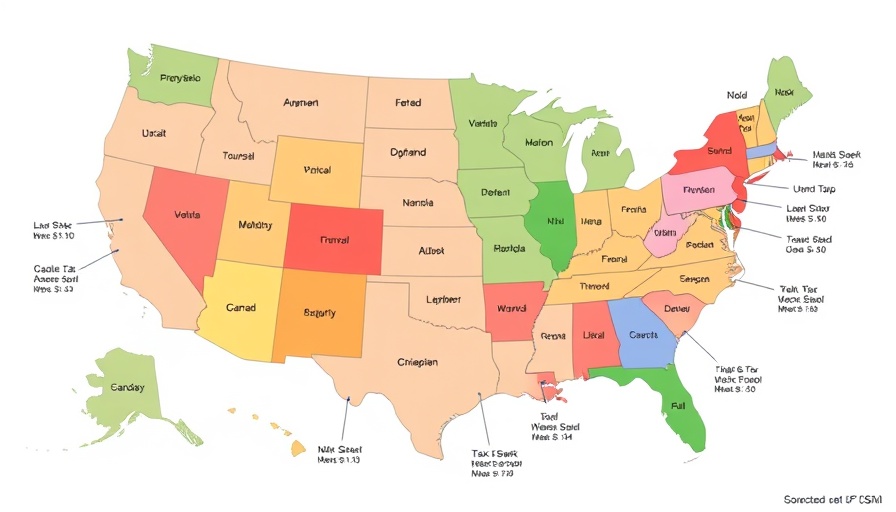
Understanding Nonresident Income Tax Filing Laws
Tax season can be daunting for many individuals, especially those who earn income across state lines. As of 2025, navigating nonresident income tax laws will be increasingly complex for American taxpayers. With 24 states requiring nonresidents to file an income tax return even for a single day of work, understanding these laws becomes crucial.
Filings Made Easy: Taxpayers Must Know Their Obligations
For taxpayers working or earning income in multiple states, the challenge is exacerbated. Each state has different nonresident individual income tax filing thresholds. Nine states do not levy taxes on wage and salary income at all, while others have very low income thresholds, such as $100 in Vermont. In Connecticut, nonresidents must file only after spending more than 15 days in the state and earning over $6,000.
Future Trends: The Call for Tax Reform
The complexities inherent in nonresident income tax laws raise significant questions about compliance and governance. There's a growing consensus among experts that reform is necessary to alleviate the burdens placed on taxpayers. Tackling these issues could lead to a more efficient tax system that serves the American taxpayer better.
Common Misconceptions: Clearing Up Confusion
Many taxpayers are unaware that even limited work in a state can trigger tax filing requirements. This contributes to low compliance rates, as some may overlook obligations due to confusion. Being informed can help taxpayers avoid potential penalties and ensure they adhere to the law.
Your Tax Responsibilities: Don’t Leave Money on the Table
Ultimately, staying informed about nonresident filing requirements is essential. Each taxpayer must understand their specific obligations to avoid complications. If you're working in multiple states, consider seeking advice from tax professionals to ensure compliance and optimize your returns.
 Add Row
Add Row  Add
Add 




 Add Row
Add Row  Add
Add 

Write A Comment